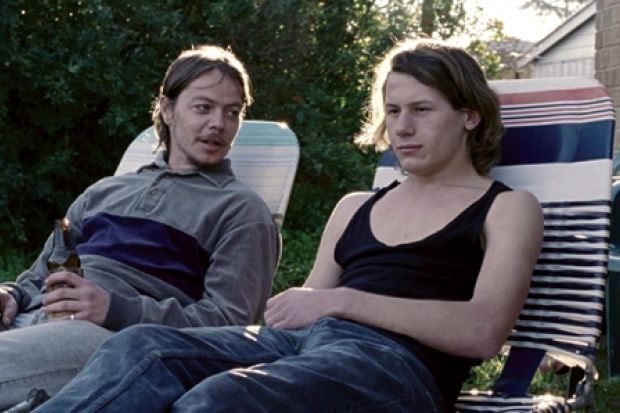Snowtown
Directed by Justin Kurzel
Starring Lucas Pittaway and Daniel Henshall
Released in the UK on 18 November
Uncompromising: it's a word pinned on a film like a red badge of courage, a word usually bestowed as a sign of unstinting praise. I heard it last week used on BBC Radio 4's Today programme to describe Andrea Arnold's Fish Tank - an "uncompromising study of life on an estate", said the reporter. The word, too, has been much in evidence in reviews and accounts of Snowtown, a film released this week. It is set in a marginalised and disenfran-chised estate in Adelaide's northern suburbs, where John Bunting, Australia's most notorious killer, and his accomplices tortured and killed 11 people, in what came to be known as "the bodies in the barrels" murders. It is as if "uncompromising" is attached to film-makers who adopt a certain stance towards a particular subject, the working class or the dispossessed. I can't remember a film praised for its uncompromising account of middle-class life.
In one obvious sense, Snowtown is without compromise. It retells the bleak story of Bunting and his fellows, and in one extraordinarily disturbing and extended scene shows one of them being tortured and killed. But even before Bunting arrives on the scene, we are already falling down into one of hell's lower circles, as we watch a neighbour, a paedophile, exploiting and photographing the children of Elizabeth, one of the residents.
Into this world, Bunting arrives, initially as something between saviour and vigilante, slowly insinuating himself into the fatherless family, cutting up a kangaroo to throw its mashed-up remains over the door of the paedophile and driving him from the estate. He also shows a tender concern for the adolescent Jamie, one of Elizabeth's children whom we see raped by his half-brother, Troy.
Adept at stirring up in the estate ideas of natural justice - vengeance - towards those the community finds alien, Bunting quickly transforms his vigilantism into sadistic mayhem, as he "cleanses" the estate of a drug addict and an obese woman of less-than-average intelligence, among others. The others include Troy, Jamie's half-brother, who clearly is not seduced by Bunting, something the murderer knows, as well as the fact that the older boy had raped Jamie. By the time of Troy's torture (and this scene puts to the test those with any human disposition at all), Jamie has accepted the fatherly protection of Bunting and is torn between running away from the torture scene and watching as his former tormentor is tied down in a bathtub and set upon. The torture proceeds slowly: shots of pliers breaking toes, tearing off toenails, a beaten and bloody face, and a chain slowly choking Troy, but not quite to death, with Bunting face-up-close, watching the young man in front of him suffer. Jamie, unable to watch the torture, finally intervenes to "finish off" his half-brother, by holding the chain tight, eyes closed, until the damaged flesh stops panting. Bunting then strokes Jamie's hair, intoning "Good boy, Good boy", for all the world as if he has just done some arduous homework or some good deed for the day.
This long scene is almost unendurable, as much for the viewers as for Jamie, whose point of view is often ours. It is probably for this scene that Snowtown has been awarded the uncompromising laurel. Yet the scene has nothing in common with "torture porn" films such as Hostel or Saw. Nor has it the fascination with criminal murder, damnation and redemption that Dostoevsky has in Crime and Punishment.
But nor is it like the still-extraordinary shower scene in Hitchcock's Psycho, which also plays with the ethical consequences of watching someone else's pain. In that film, we are voyeurs, from the first scene where we creep through the window with the camera to find Marion Crane (Janet Leigh) half-dressed, to her brutal murder by Norman Bates (Anthony Perkins). As she slips to the floor of the shower, Marion reaches towards the camera for help and it decorously withdraws, damning us, the viewers, for our refusal to intervene. In Snowtown, on the other hand, our only option, as is Jamie's, seems to be to watch or to intervene, but here not to help but to participate and kill. All hope is annihilated.
This is a film made by first-time director Justin Kurzel, which uses only one professional actor Daniel Henshall, brilliant as Bunting, and makes much of its casting of local residents and of its shooting in the locality. Yet it seems to me uncompromising, in the end, only in its lack of any hope in the working-class community that it conjures up. This is not a plea for some happy ending or even for just a glimpse of redemption - only a request that uncompromising does not become a synonym for films that find only hell among the lower depths.
